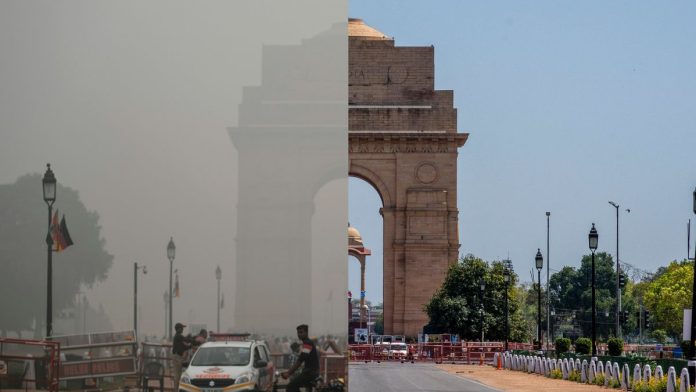
As the pace of life slowed down due to the coronavirus lockdown, it led to a considerable drop in carbon emissions on planet Earth. With factories shut and hardly any cars on the roads countries like China, Italy, Germany and UK, showed significant improvement in the air quality with a 40% reduction in carbon dioxide and nitrogen dioxide. This positive impact of the COVID-19 pandemic became visible from space with satellite images showing how air pollution has reduced due to the pandemic.

The positive impact of coronavirus pandemic
1. Fewer Carbon Emissions
With WFM – Work From Home becoming the new normal, it has not just reduced commute time and petrol bills but has been positively good for the environment! According to The Climate Group, the WFM concept has the potential to reduce over 300 MILLION tonnes of carbon emissions per year. Rob Jackson, the chairman of Global Carbon Project aptly says, “The drop in emissions is global and unprecedented, air pollution has plunged in most areas. The virus provides a glimpse of just how quickly we could clean our air with renewables. But I refuse to celebrate a drop in emissions driven by tens of millions of people losing their jobs. We need systemic change in our energy infrastructure, or emissions will roar back later.”
2. Resurgence of Wildlife
According to Matt Walpole of Fauna and Flora International, “In the short term it would be dangerous to think that a downturn in economic activity is a benefit to nature, there are significant risks.” Yes, Matt Walpole may be absolutely on the dot. There is a good side and bad side to the wildlife on account of the coronavirus pandemic.
Good:
– Lower animal deaths as traffic reduces on the roads and at railway crossings (in the UK alone 100,000 hedgehogs, 30,000 deer, 50,000 badgers and 100,000 foxes die annually due to accidents).
– Wildlife is able to move about more freely without the fear of being shot by hunters who are also currently staying at home. (For example, Coyotes were spotted on the Golden Gate Bridge in San Francisco, Deer a few miles from the White House in Washington, Wild boar in Barcelona and Bergamo, Italy, and Peacocks in Bangor, wales).
– Fewer fishermen in the sea mean fish can swim safely without being caught in the nets.
Bad:
– As pandemic means less money, lesser personnel will be deployed to conserve endangered species and habitats.
– In Masai Mara and Serengeti, with no tourist revenue, the rangers are struggling.
– Due to job loss many persons may resort to illegal poaching, mining and logging.
– Has hindered environmental diplomacy.
– Talks on the environment conservation are being delayed. United Nations postponed its climate change talks, and the EU-China climate summit to be held in October called, ‘UN 2020 Biodiversity Conference’ is similarly indefinitely postponed.
3. Improved Air Quality
COVID-19 helped expose the respiratory health crisis, where close to 3 million people die each year due to conditions brought about by air pollution. It is said 80% of people living in large cities expose themselves to air quality levels that exceed safe limits.
Measurements and images from Europe’s Sentinel-5P satellite exposed how cities in Asia and Europe had 40% cleaner air with lower levels of Nitrogen Dioxide (NO?) during January and early February 2020, as compared to the same period in 2019.
According to China’s Ministry of Ecology and Environment and findings of NASA, the average number of good-quality air days increased by 21.5% and Carbon emissions went down by 25% in the country. Similarly, counties like India, Italy, and USA reported lesser air pollution.
Time to look at alternatives like electric cars to maintain safe air quality.
4. Lesser Marine Pollution
With no fishing boats or pleasure yachts, waterways, rivers and oceans cleared up and marine life began to thrive. Also, lesser industrial pollutants in the water helped marine life.
5. Food Chain
Small-scale farmers found a way to directly sell their agricultural produce to different communities where people could not move around freely. This direct-selling has benefitted both farmers and consumers with the chain of middle-men gone.

Conclusion
YES, this is the most positive outcome of the ongoing COVID-19 pandemic around the world including in India. The coronavirus highlighted that carbon emission can be controlled for cleaner healthier air. So, having learned such a valuable lesson, let’s get together and conserve this tiny speck of the Universe called EARTH for the next generations.
Greta Thunberg recently wrote online, “?The climate and ecological crisis is the biggest crisis humanity has ever faced but for now (of course depending on where you live) we’ll have to find new ways to create public awareness & advocate for change that don’t involve too big crowds – listen to local authorities. ?So keep your numbers low but your spirits high and let’s take one week at the time.“
